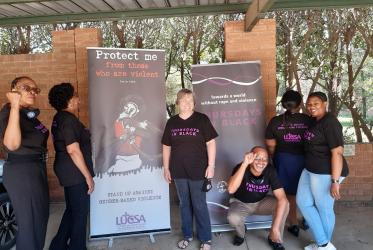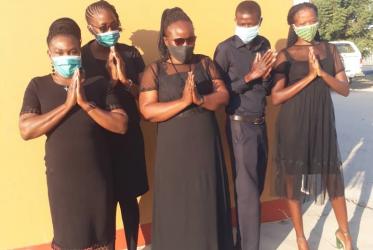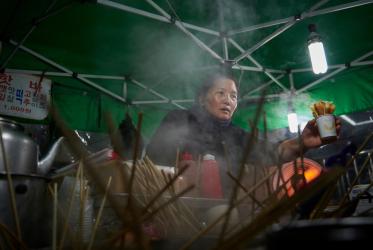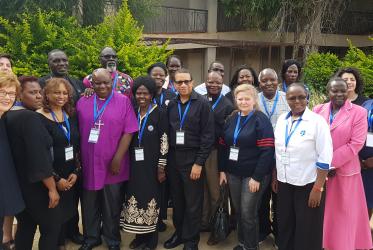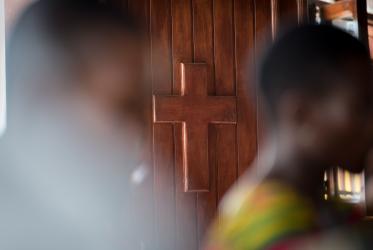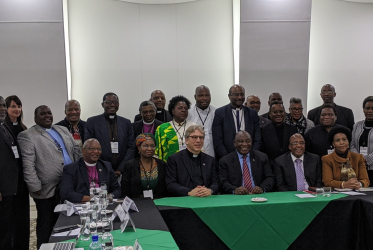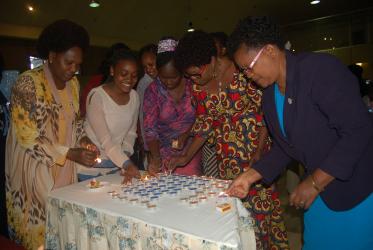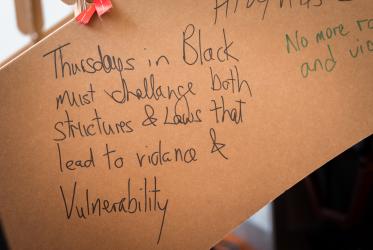Displaying 21 - 40 of 104
01 February 2021
COVID-19 in conflict zones: “a crisis within another crisis”
27 November 2020
Thursdays in Black is growing in Namibia
20 August 2020
Listening together to the pain of violent spaces
28 February 2020
South Africans draw hope despite recurring challenges
16 December 2019
WCC delegation meets with South African President Ramaphosa
09 December 2019
Youth leaders: “We will stop at nothing” to end HIV and violence
17 October 2019
Hanbeet Rhee: “Young people can be bridges”
17 October 2019
Churches in southern Africa stand against violence, xenophobia
10 October 2019
Rev. Damon Mkandawire: “A man is a gender justice champion”
03 October 2019
Ethiopians celebrate Meskel festival
01 October 2019
When you strike the women, you strike a rock
18 September 2019



